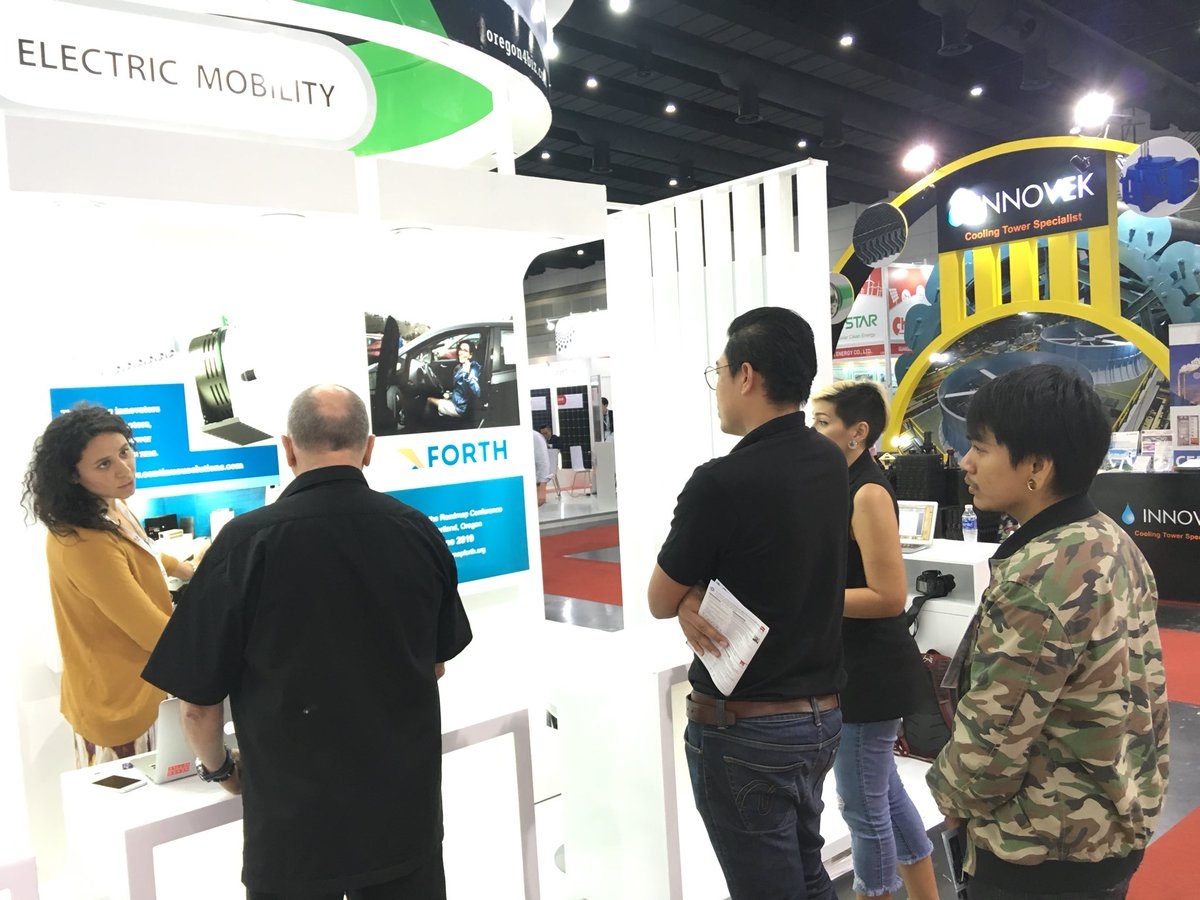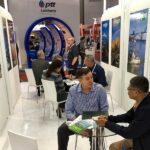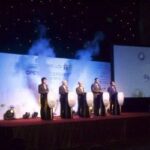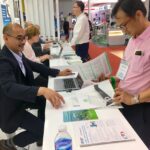Spirits are running high on day three of the Oregon trade mission to Thailand, as several companies report early leads at the ASEAN sustainability week trade show.
Oregon’s trade delegation recapped day three while dining on gang kiew (green curry), satay, kao neow ma mueng (mango sticky rice) and bottles of the ubiquitous Singha lager. The meal took place at Terminal 21, a sprawling shopping mall near our hotel.
Mobility Cubed CEO Mike Gerard uncovered a promising opportunity following meetings with a Thai legislator and members of the Thai Chamber of Commerce. Gerard says the discussions led to a potential manufacturing opportunity allowing him to provide semi-autonomous electric vehicle technology to Thailand and other countries in the region, including Australia, Philippines, Malaysia and Sri Lanka.
“My time and money are well spent on this trip,” he says. “My company has significant potential for growth as a result.”
He expects to find out in July if the manufacturing deal goes through.
Shelley Peng, VP of marketing and communications for Energy Storage Systems, met with a German developer and a high-ranking official in Thailand’s energy planning department. Chris Thompson, representing West Salem Machinery, gathered three or four “promising” leads.
After a discouraging first day, Hans van der Meer, founder of EV Global, scored a meeting with the head of technology and development for the Electricity Generating Authority of Thailand, the state-owned utility.
READ RELATED COVERAGE: DAY TWO, OREGON TRADE DELEGATION IN BANGKOK
The trade show opened with considerable fanfare. During the opening ceremony, complete with smoke machine, Minister of Energy Siri Jirapongphan declared renewables a pillar of the Thailand 4.0 master plan, a nationwide economic development strategy.
He then proceeded to tour the exhibition floor, pausing for regular photo-ops. A gaggle of Southeast Asian media photographed him peering into an electrified tuk tuk engine and pointing decisively at a virtual map of Thailand’s energy grid, as if plotting a military campaign.
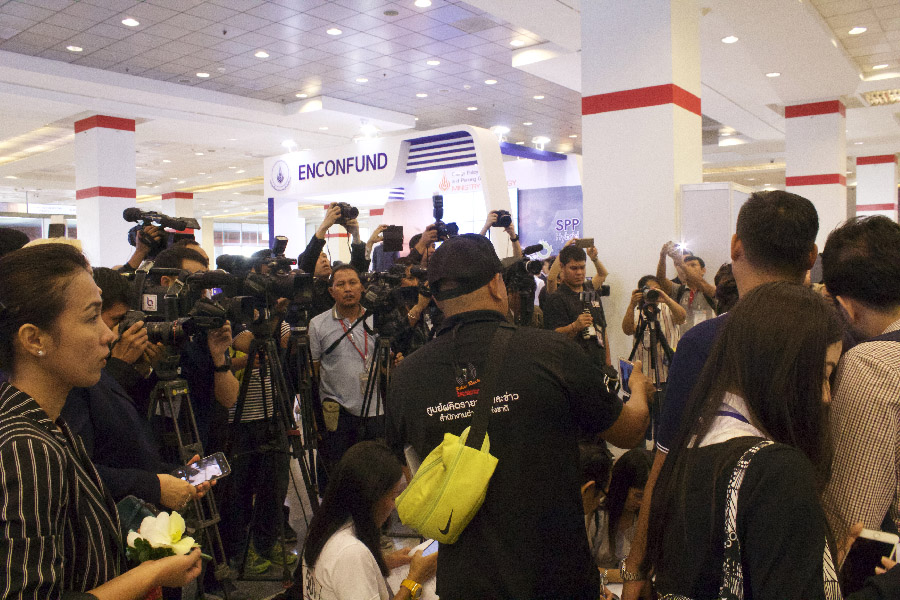
On the main floor exhibitors displayed green technologies tailored for Southeast Asian markets. Monks in brilliant orange robes marveled at solar panels. Women lured businessmen toward solar installations, charging stations and electric motorbikes.
The Oregon booth lacked that feature, but posters of Multnomah Falls and Smith Rock managed to attract visitors. The eight Oregon companies explained their products to attendees and conducted brief meetings.
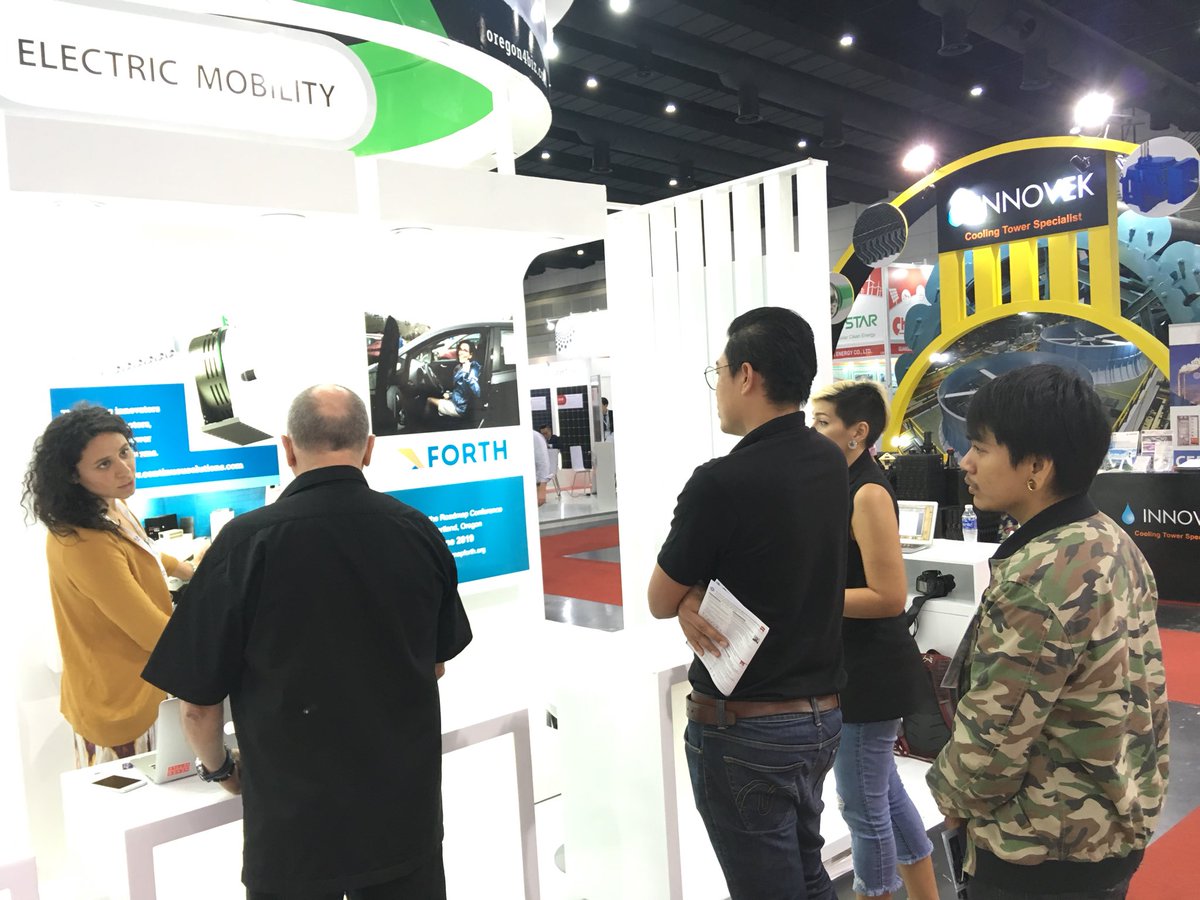
Visitors line up at ASEAN’s Oregon booth
I followed Peng as she navigated the idiosyncrasies of doing business in Thailand.
Executives here put little stock in schedules and appointments.
We spent much of the day following Los Angeles-based Consul General Tanee Sangrat, as he explained to various staff that we wanted to meet with Twarath Sutabutr, director-general of the energy policy and planning office. We arrived at appointments twice only to find the director otherwise engaged speaking or at lunch.
A similar lax approach characterized the panels. An energy storage panel in the afternoon began half an hour late but proved fruitful. Peng met with a German developer and discussed ESS’s all-iron flow battery, an alternative to the lithium-ion batteries that currently dominate the Southeast Asian market.
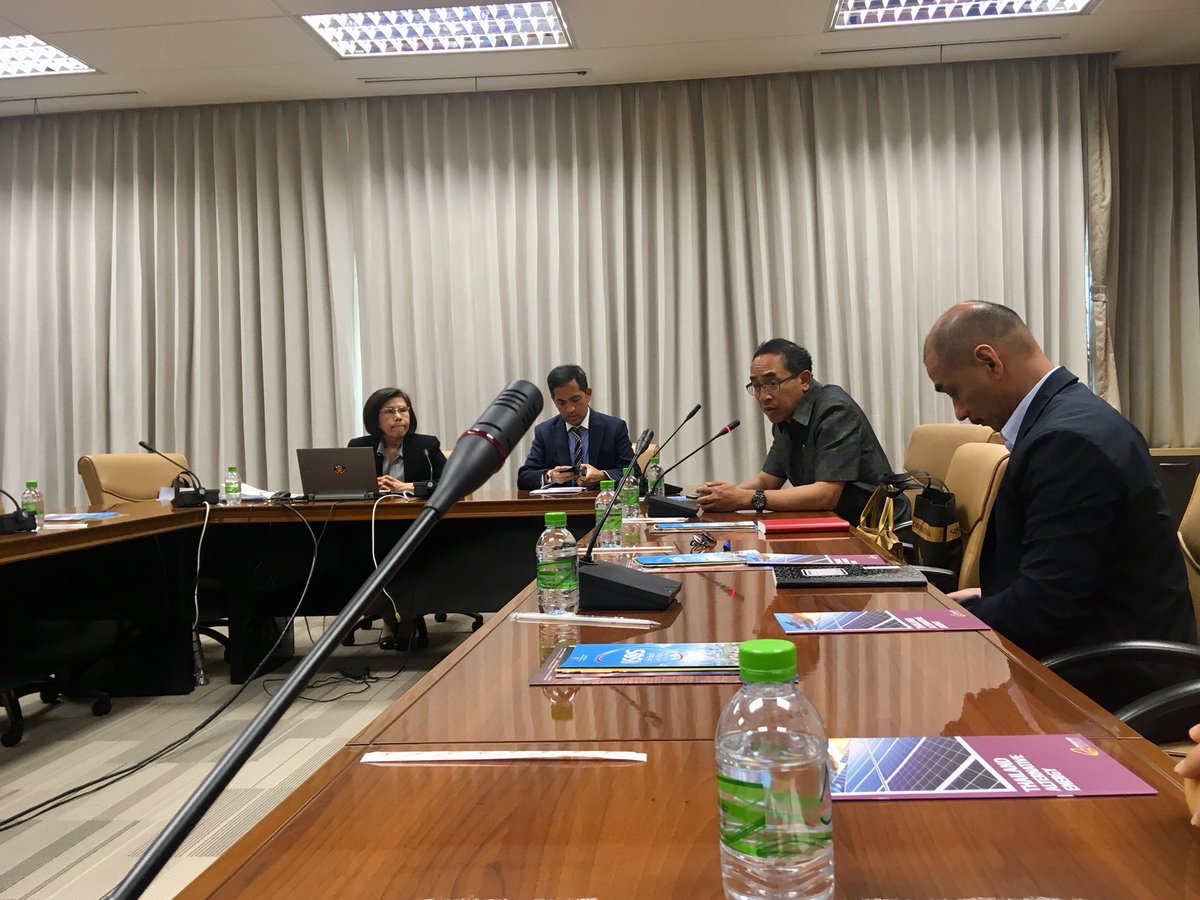 Oregon companies meet with Thai Board of Investment, the country’s economic development agency.
Oregon companies meet with Thai Board of Investment, the country’s economic development agency.
At the end of the day, Peng and I each landed a five-minute meeting with Sutabutr. I greeted the director and his staff with a wai, the characteristic Thai greeting with steepled hands and shallow bow.
Following Thai protocol, we presented business cards with both hands and gazed at the contact details for a good minute before getting down to a discussion.
He said knowledge gleaned from Oregon companies could prove useful for Thailand. “There are a lot of renewables in our future,” he said. “I guess Oregon can show us a good example.”
Before boarding the skytrain back to Sukumvit Road, I returned to the Oregon booth to talk with Kitti Kumpera, a friend of one of our delegates. The retired Thai businessman spent plenty of time during his career connecting Thai and American companies. He says Americans tend to rush.
“They do work today, want deal tomorrow,” he says. Thai business people move at a more relaxed pace.
By the end of the day, that much was clear.
Related Coverage: Photo Gallery, Bangkok Trade Mission


